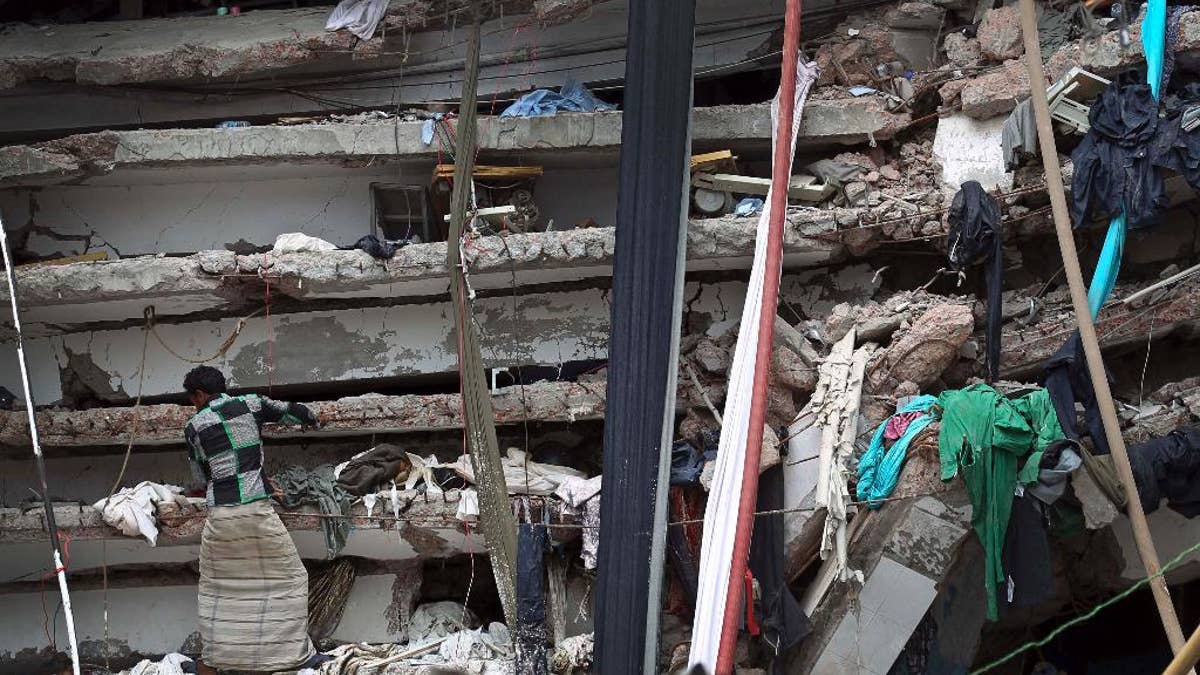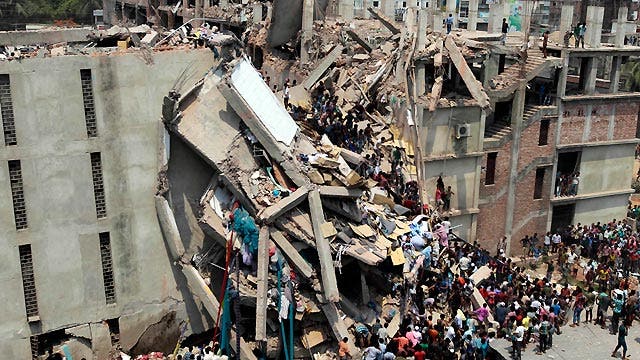Fox News Flash top headlines for Oct. 24
Fox News Flash top headlines for Oct. 24 are here. Check out what's clicking on Foxnews.com
Amazon sells clothes produced in dozens of Bangladeshi factories that leading retailers have shunned because they are too dangerous for their supply chains, a new investigation reveals.
In connection with the banned factories The Wall Street Journal probe found with apparel on Amazon, more than two-thirds of the items produced were being sold by third-party sellers using the tech giant's marketplace platform, and some were for sale by Amazon directly.
The 2013 collapse of the Rana Plaza garment factory, which killed more than 1,100 people, led to major American retailers joining safety monitoring groups that required them to hold their suppliers to higher safety standards.
Those clothing items reportedly included pants, sweaters, clerical robes, fishnet body stockings.
One $4.99 yellow gingham toddler top thatTthe Journal discovered for sale on Amazon by a New York City retailer was traced to a factory in Chittagong, Bangladesh. That facility does not have any fire alarms and the doors can be locked by managers to keep workers inside.
A laborer at the factory, 18-year-old Nasreen Begum, said she spends 12-hour days there stitching shirts with 300 others. “You’re trapped inside until the time you complete the orders,” she told The Journal.
The Journal found other apparel on the company led by CEO Jeff Bezos made in Bangladeshi factories whose owners have refused to fix safety problems identified by two worker safety groups. Those issues include crumbling buildings, broken alarms, and missing sprinklers.
According to The Journal, U.S. retailers like Walmart, Target, Gap and Costco have agreed to honor bans imposed by those two groups, to have their supply chains inspected and to disclose to the groups the factories that supply them.
When asked about its practices in this area, the company removed some listings The Journal identified as being from banned Bangladeshi factories, including the yellow top, and said it was reviewing the others.
GOOGLE CLAIMS QUANTUM COMPUTING 'SUPREMACY' IN MAJOR MILESTONE

In this April 30, 2013 file photo, a worker toils in a collapsed garment factory building in Savar, near Dhaka, Bangladesh. (The Associated Press)
BREAKING UP BIG TECH GIANTS IS 'ON THE TABLE,' SAYS TOP ANTITRUST REGULATOR
A spokesman told The Journal that Amazon inspects factories that supply its own brands to ensure they are in line with international safety standards similar to those of the safety-monitoring groups. The Journal didn’t discover any Amazon-owned brands made in banned factories. In addition, the spokesman said Amazon doesn’t inspect factories making clothing that it purchases from wholesalers or that arrives from third-party sellers.
The Seattle-based company expects those wholesalers and sellers to adhere to the same safety standards.
However, Amazon’s agreement with third-party sellers doesn’t explicitly say they must meet those standards, The Journal noted.
“If we become aware that a product is from a factory that may not meet our supply chain standards,” the spokesman said, “we will remove the product from our store.”










































